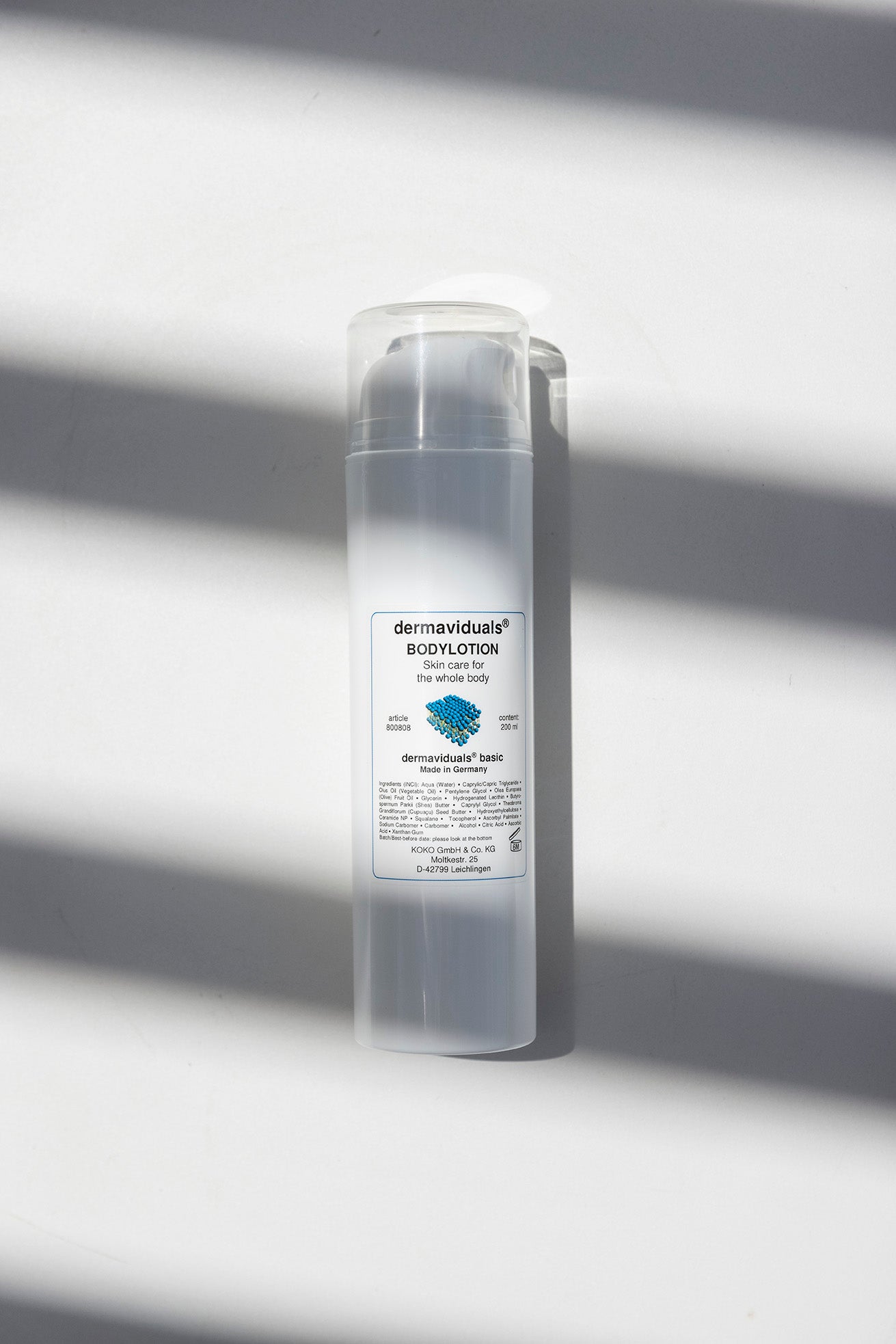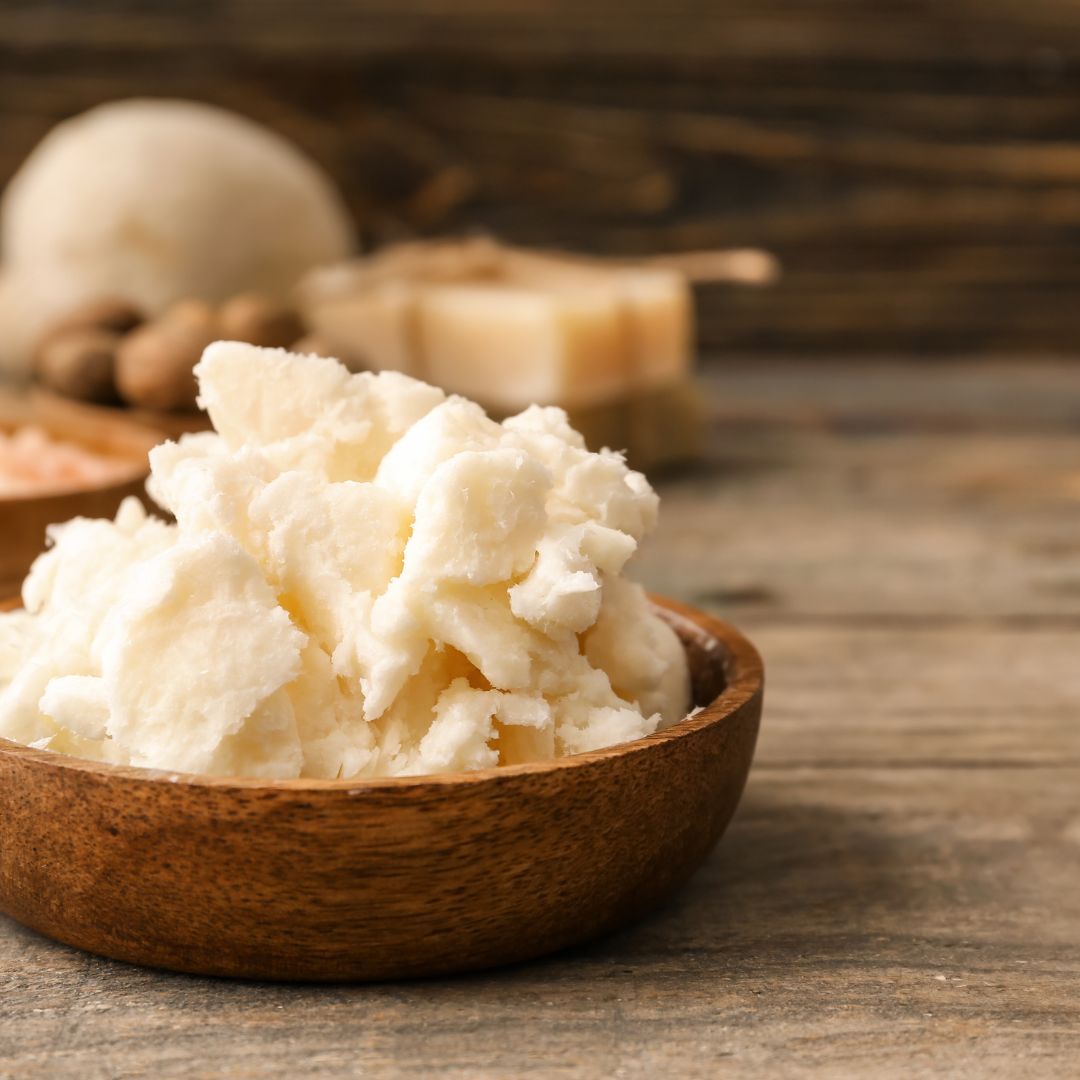Shea butter is a time-tested skincare ingredient known for its moisturizing and healing properties. However, there's a persistent myth that shea butter is comedogenic, meaning it clogs pores and causes acne. This misconception has left many skincare enthusiasts wary of using shea butter, fearing it might exacerbate their skin issues. The truth about shea butter is quite the opposite. In this blog, we will delve into why shea butter is not comedogenic, the common misconceptions surrounding it, and why Dermaviduals is a preferred brand stocked by The Elysian Facialists, who use it in our DMS High Classic Base Cream and other products.
Understanding Shea Butter
Shea butter is derived from the nuts of the shea tree (Vitellaria paradoxa), which is native to Africa. Rich in fatty acids and vitamins, shea butter has been used for generations to nourish and protect the skin. Its unique composition includes a high concentration of stearic and oleic acids, along with linoleic and palmitic acids. Additionally, shea butter is packed with vitamins A, E, and F, which contribute to its antioxidant and anti-inflammatory properties.
Debunking the Comedogenic Myth
The term "comedogenic" refers to substances that tend to clog pores, leading to the formation of blackheads, whiteheads, and acne. The comedogenicity of skincare ingredients is often rated on a scale from 0 to 5, with 0 being non-comedogenic and 5 being highly comedogenic. Shea butter is often mistakenly believed to be highly comedogenic, but in reality, it falls on the lower end of the scale, typically rated between 0 and 2.
Several factors contribute to the misunderstanding of shea butter's comedogenicity:
1. Misinterpretation of Composition: Shea butter is rich and creamy, which can lead people to assume it is pore-clogging. However, its fatty acid profile is similar to the natural oils produced by our skin, making it highly compatible and less likely to clog pores.
2. Individual Skin Reactions: Skin reactions can vary greatly among individuals. Some people might experience breakouts from shea butter due to specific skin sensitivities, but this is not indicative of its general comedogenicity.
3.Quality and Purity: The quality and purity of shea butter can significantly impact its effects on the skin. Unrefined, pure shea butter retains its beneficial properties and is less likely to cause adverse reactions compared to heavily processed versions that might contain additives.
Who Benefits Most from Shea Butter?
Shea butter is a versatile ingredient that can benefit a wide range of skin types and conditions. Here’s a closer look at who might benefit most from incorporating shea butter into their skincare routine:
1. Dry and Dehydrated Skin: Shea butter is an excellent moisturizer due to its high fatty acid content. It helps to seal in moisture and create a protective barrier on the skin, making it ideal for those with dry or dehydrated skin.
2. Sensitive Skin: The anti-inflammatory properties of shea butter make it a soothing choice for sensitive skin. It can help to calm irritation and reduce redness.
3. Aging Skin: Shea butter is rich in vitamins A and E, which are known for their anti-aging benefits. These vitamins help to promote collagen production and improve skin elasticity, reducing the appearance of fine lines and wrinkles.
4. Eczema and Psoriasis: The moisturizing and anti-inflammatory properties of shea butter can be particularly beneficial for individuals with eczema and psoriasis, helping to alleviate itching and flaking.
5. Normal to Combination Skin: While shea butter is often recommended for dry skin, its non-comedogenic nature means that it can also be beneficial for normal to combination skin types. It provides balanced hydration without clogging pores.
Why Dermaviduals Chooses Shea Butter
At The Elysian Facialists, we are committed to stocking only the highest quality brands that use effective and gentle ingredients. Our decision to include Dermaviduals products, which feature shea butter, is based on its remarkable benefits and compatibility with a wide range of skin types.
1.Mimicking Skin’s Natural Barrier: The DMS (Derma Membrane Structure) technology used in Dermaviduals products is designed to mimic the skin’s natural barrier. Shea butter’s fatty acid profile closely resembles the lipids found in the human skin barrier, making it an ideal ingredient for these formulations. It helps to strengthen the skin’s barrier function, preventing moisture loss and protecting against environmental stressors.
2. Enhanced Moisturization: Shea butter’s emollient properties provide long-lasting hydration, making it a key component in moisturizing creams. It helps to soften and smooth the skin, leaving it feeling nourished and revitalized.
3. Anti-Inflammatory and Healing Properties: Shea butter’s anti-inflammatory benefits make it an excellent choice for soothing irritated and inflamed skin. Its healing properties also make it a valuable ingredient for promoting skin recovery and reducing the appearance of scars and blemishes.
4. Safe for Sensitive Skin: Dermaviduals' formulations are designed to be gentle and non-irritating, and shea butter aligns perfectly with this philosophy. Its gentle nature makes it suitable for even the most sensitive skin types, ensuring that Dermaviduals products provide effective care without causing adverse reactions.
Incorporating Shea Butter into Your Routine
Integrating shea butter into your skincare routine can provide a multitude of benefits. Here are some tips on how to use products containing shea butter effectively:
1. Cleansing: Start your routine with a gentle cleanser to remove impurities without stripping the skin of its natural oils.
2. Moisturizing: Apply a moisturizer containing shea butter, such as the Dermaviduals DMS High Classic Base Cream, to provide deep hydration and nourishment. Use it twice daily, in the morning and evening, to maintain optimal moisture levels.
3. Targeted Treatments: For specific concerns like dryness, eczema, or irritation, consider using a concentrated shea butter product as a targeted treatment. Apply it directly to the affected areas to soothe and heal the skin.
4. Body Care: Shea butter isn’t just for the face. Use body lotions and creams containing shea butter to keep your skin soft and hydrated all over. It’s especially beneficial for dry areas like elbows, knees, and heels.
The Final Word
Shea butter is a powerhouse ingredient with a multitude of benefits for the skin. Despite common misconceptions, it is not comedogenic and can be safely used by a variety of skin types. At The Elysian Facialists, we stock Dermaviduals products that harness the power of shea butter to provide effective, gentle, and nourishing skincare solutions. By incorporating shea butter into your routine, you can enjoy its moisturizing, anti-inflammatory, and healing properties, achieving healthier and more radiant skin. Don’t let myths deter you from experiencing the true potential of shea butter – embrace this natural wonder and discover the difference it can make for your skin.
Jay- The Elysian Facialist



